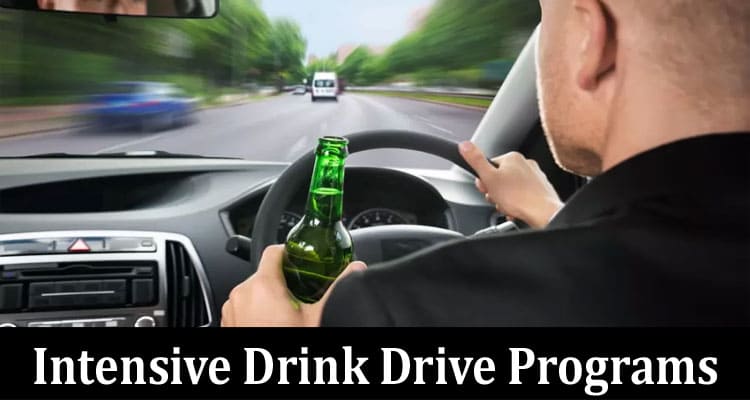Driving under the influence of alcohol and drugs remains a significant public safety concern, leading to countless accidents, injuries, and fatalities worldwide. In response to this alarming issue, innovative approaches have emerged to tackle the root causes of such behaviour. One particularly promising avenue is the implementation of drink driving courses, which aim not only to penalise offenders but also to transform their lives through comprehensive rehabilitation. This article delves into the importance and impact of these programs in breaking the cycle of dangerous driving behaviours.
The Vicious Cycle of Drink and Drug Driving
Driving under the influence of alcohol and drugs creates a dangerous feedback loop, often resulting in repeat offences. Individuals caught in this cycle face legal consequences, damaged relationships, and personal turmoil. The reasons for relapse are complex and multifaceted, ranging from addiction to underlying psychological issues. Traditional punitive measures, while necessary, often fail to address these underlying factors, leading to a revolving door of offences.
A Paradigm Shift: Intensive Drink Drive Programs
Intensive drink and drug drive courses represent a paradigm shift in addressing the problem of intoxicated driving. These programs move beyond mere punishment, focusing on comprehensive rehabilitation and behaviour change. The goal is to break the cycle of addiction and dangerous behaviour, leading to long-term positive outcomes for both the individuals involved and society as a whole.
Comprehensive Assessment and Individualised Plans
One of the cornerstones of intensive programs is the thorough assessment of each participant’s unique situation. This evaluation helps identify underlying issues that contribute to their behaviour. From addiction to mental health concerns, participants receive tailored interventions that target the root causes of their actions. By treating the individual as a whole, these programs have a higher chance of success in preventing relapses.
Holistic Approach to Rehabilitation
Intensive programs recognise that successful rehabilitation requires a holistic approach. Participants engage in various therapeutic activities, including individual and group counselling, addiction treatment, and skill-building workshops. Holistic rehabilitation aims to equip participants with the tools needed to cope with challenges and triggers that may have led to drunk and drug driving in the first place.
Education and Awareness
Education and awareness play a pivotal role in breaking the cycle of dangerous driving behaviours. Intensive programs incorporate educational components that highlight the potential consequences of intoxicated driving, both for the individual and society. By fostering awareness, participants gain a deeper understanding of the impact of their actions, encouraging a sense of responsibility and empathy.
Community Support and Accountability
Breaking free from the cycle of drunk and drug driving requires a supportive environment. Intensive programs often involve family members, friends, and community resources in rehabilitation. This sense of community support helps participants rebuild their lives and reinforces the idea that their actions affect more than just themselves.
Long-Term Follow-Up and Aftercare
The journey to transformation doesn’t end with the completion of an intensive program. Long-term follow-up and aftercare are essential components to ensure sustained behaviour change. These programs provide ongoing support, addressing challenges as participants reintegrate into society. By maintaining contact and offering resources, the risk of relapse can be significantly reduced.
Measuring Success and Societal Impact
The success of intensive drink and drug drive programs can be measured not only by reduced recidivism rates but also by the broader societal impact. As participants transform their lives, the ripple effects extend beyond individual rehabilitation. Communities benefit from safer roads, fewer accidents, and a reduction in the strain on legal and healthcare systems.
In conclusion, drunk driving courses represent a beacon of hope in the battle against intoxicated driving. By breaking the cycle of dangerous behaviour through comprehensive rehabilitation, these programs address the underlying causes of drunk and drug driving, leading to positive outcomes for individuals and society. As awareness grows and more jurisdictions adopt these transformative programs, the road ahead becomes safer for everyone.


